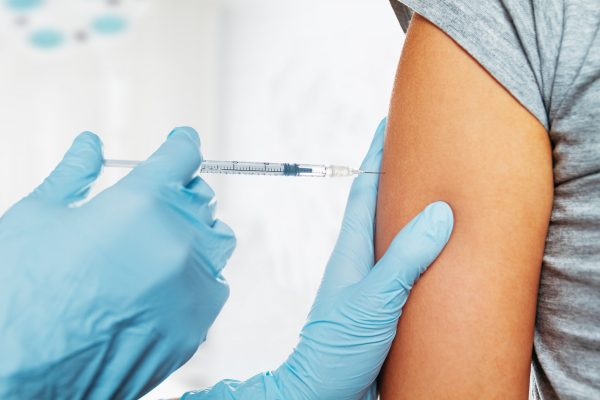We Specialize In Vaccine Research
The Vaccine Division of QPS specializes in all types of vaccine research.
The vaccination field has recently developed into one of QPS’s largest specialties as a result of today’s increased threat of bioterrorism, as well as a growing awareness of the value of preventative healthcare. We pride ourselves on accuracy, ethics, and quality data.
Our large volunteer database, former study subject database, in-house marketing agency, and cost-effective marketing strategies target large populations to help QPS maintain its status as a top enroller. To ensure full regulatory compliance, we use a central institutional review board (IRB). Moreover, our full-time quality assurance team, regulatory department, rigorous standard operating procedures, and experienced staff of study coordinators consistently provide quality results.
COVID-19 Vaccine Development
As the COVID-19 pandemic continues to devastate communities around the world, there is an urgent demand for a coronavirus vaccine. With our unparalleled quality standards, technical knowhow, and turnkey laboratories, QPS is well prepared to support your COVID-19 vaccine development. We have decades of experience assisting the pharmaceutical industry in mitigating viral outbreaks, and we are committed to supporting the life sciences community during this critical time by providing accurate data and expedited services.
To learn more about our clinical drug development and testing services related to the novel coronavirus, please visit our COVID-19 page.

The Long-Term Impact Of Fast-Tracked Covid-19 Vaccines
COVID-19 vaccines are currently on track to be the fastest ever to market.
Typically vaccines follow the same clinical pathway used by drugs and other biologics, progressing through three phases of clinical trials to receive approval by the Food and Drug Administration (FDA). According to information provided by the College of Physicians of Philadelphia, the process typically takes about 10 years.
But likely due to both COVID-19’s unprecedented impact on global health and new scientific breakthroughs in genomics and structural biology, the development of a coronavirus vaccine is advancing at a record-breaking pace. The first clinical trial began just 66 days after scientists received the genetic sequence of the novel coronavirus, and Dr. Anthony Fauci, Director of the National Institute of Allergy and Infectious Diseases (NIAID), estimates that a vaccine could be ready in 12 to 18 months. This accelerated pace for vaccine development could change industry standards going forward.
Thinking Ahead To Future Pandemics
While it may seem early to be thinking about the next pandemic, and it’s difficult to acknowledge that COVID-19 won’t be the last global health crisis, the best way to protect against future outbreaks is to establish development and manufacturing platforms that can be adapted to new pathogens. The scientific community may have achieved a COVID-19 vaccine sooner if SARS or MERS had been more significant threats, and funding had allowed research to continue between pandemics.
Going forward, scientists and infectious disease specialists hope to begin designing vaccines before viruses are even known to infect humans. In fact, NIAID is leading an initiative to support vaccine development and testing against prototype pathogens.
Specialty Areas Of Vaccine Research
Our Vaccine Trial Experience Includes:
- Anthrax
- Diphtheria/Pertussis/Tetanus
- Ebola
- Herpes Zoster (shingles)
- Human Papillomavirus (HPV)
- Japanese Encephalitis
- Staphylococcus
- Meningitis
- Rabies
- Pandemic Flu (Avian Influenza)
- Plauge
- Seasonal Flu (Influenza)
- Small Pox
- Zika


The Process Of Vaccine Development
The process of developing and testing vaccines is similar to that of other drugs.
First, the vaccine developers submit an Investigational New Drug application to the FDA. This application will describe the vaccine’s purpose, the manufacturing process, and quality control testing and include evidence for immunogenicity in animal testing and proposed clinical protocols for human testing.
Then, clinical development of the vaccine proceeds in three phases:
- Phase I trials are safety and immunogenicity studies performed on a small number of closely monitored human subjects.
- Phase II trials are dose-ranging studies performed on hundreds of participants.
- Phase III trials, which are typically run on thousands of test subjects, provide critical documentation of effectiveness and the safety data required for licensing.
Next, the developers submit a Biologics Licensing Application to the reviewing team at the FDA, which is composed of biostatisticians, chemists, microbiologists, and medical officers. This application should contain all of the information needed to make a risk/benefit assessment. After reviewing the Biologics Licensing Application, the team will either recommend the vaccine for approval or deny the application.
Due to the meticulous testing and rigorous approval protocols involved, developers may work for years to bring a vaccine from the lab to market.




